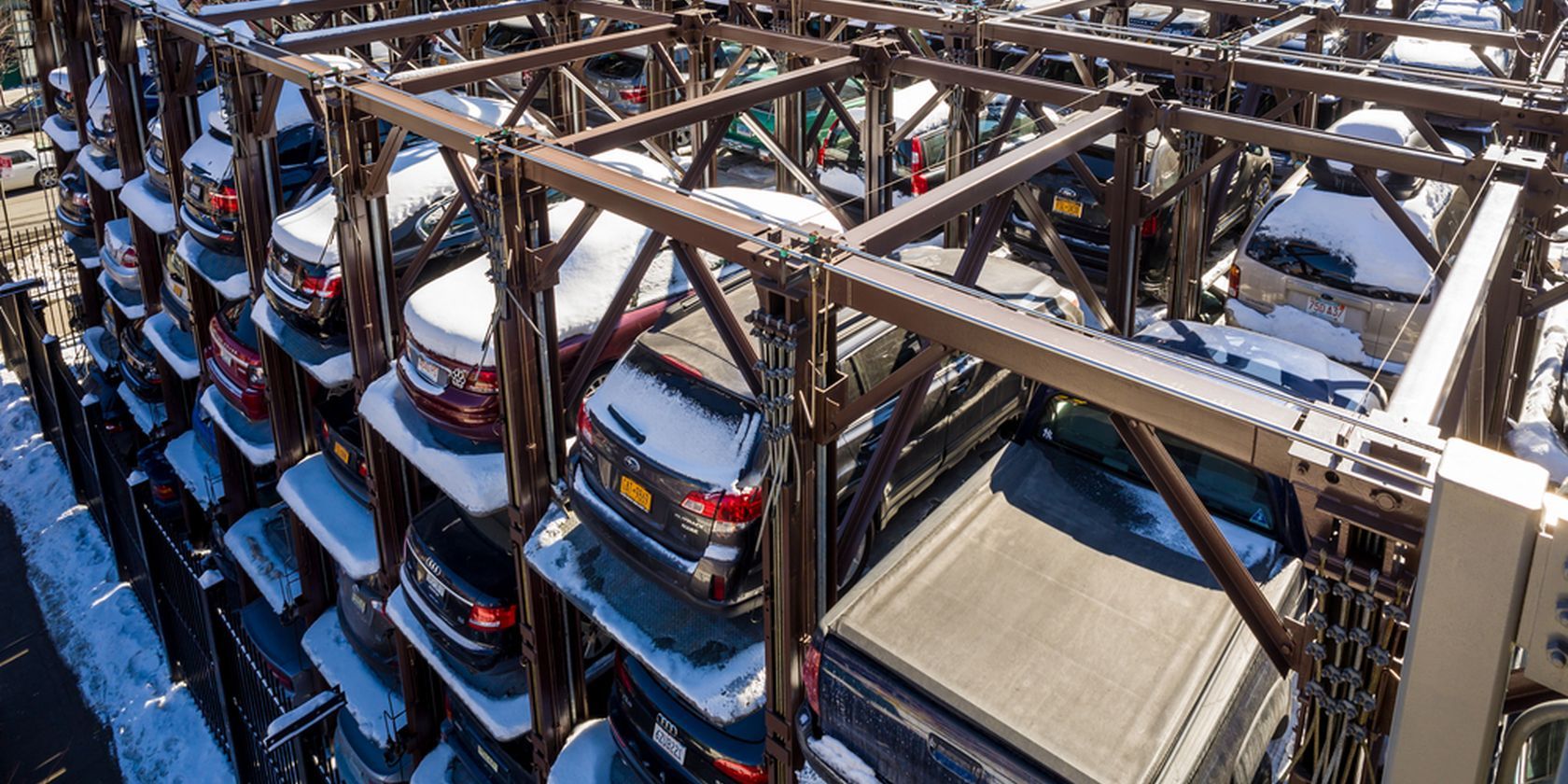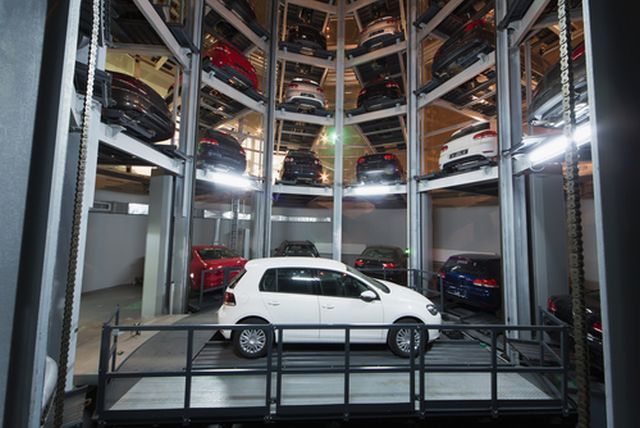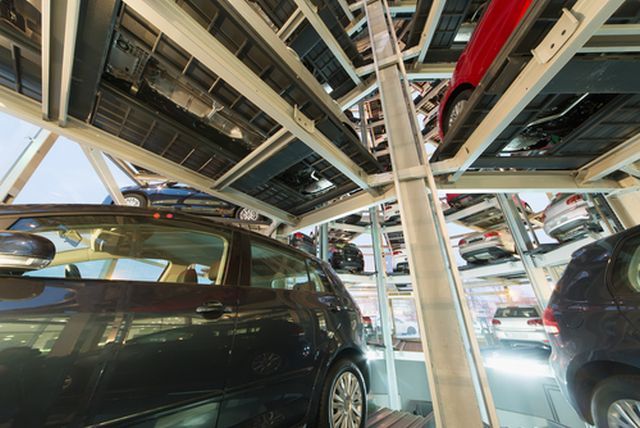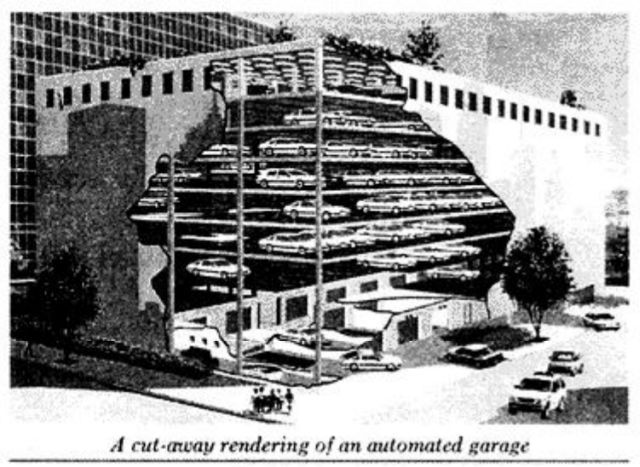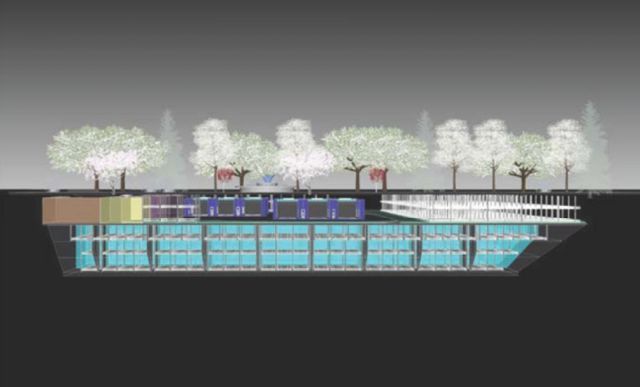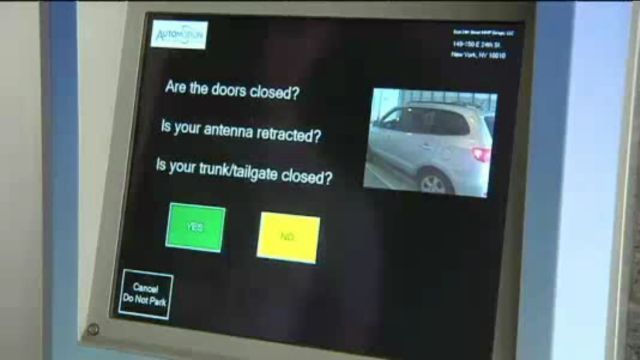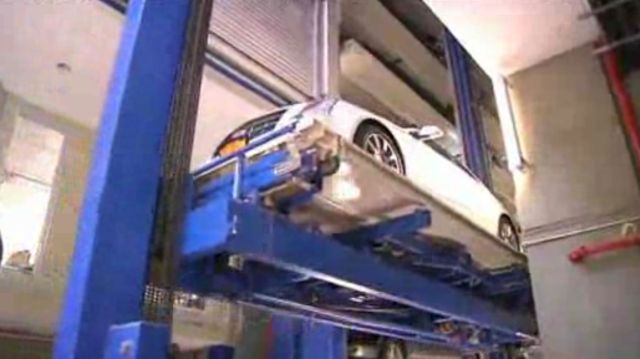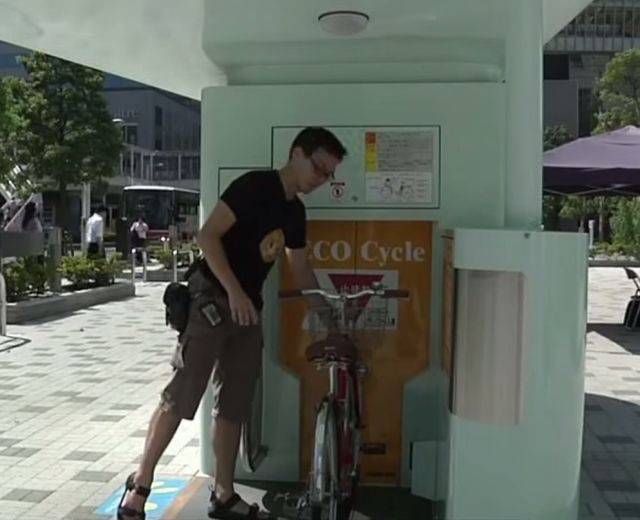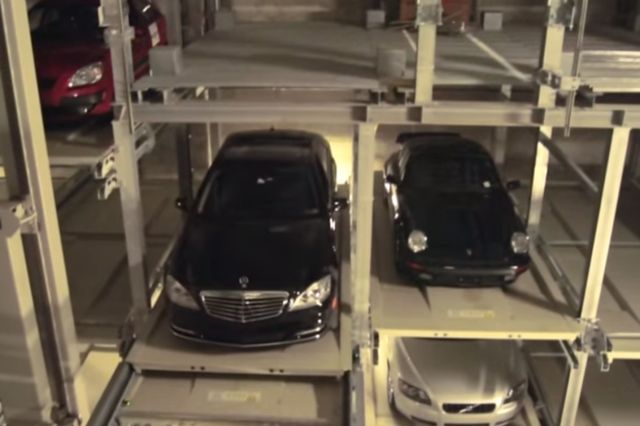If you've ever been frustrated with using parking garages in the city, you may be happy to learn that an automated alternative may be coming to a city near you.
Automated parking - otherwise known as "robotic parking garages" are not new technology, but it's a technology few people have heard about because adoption rates are so low. This will probably change as city populations rise, and as space becomes more scarce.
In its early stages, the robotic parking garage concept - while exciting and futuristic - was plagued with bugs that led to property damage and bad PR. However, a few years and some innovation later, these futuristic parking solutions are now one of the most innovative and effective ways to solve the parking and energy crisis in most of the world's cities.
What Is a Robotic Parking Garage?
The concept of an automated parking garage is brilliant in its simplicity. The Brickell House Parking Garage is a perfect example of the kind of convenience that the technology makes possible.
The way it works is a patron drives into the garage, parks the car onto a platform, obtains a parking claim ticket from a machine, and the machine takes over.
The car handling system isn't entirely unlike many part handling systems that you find in manufacturing facilities across the world. The difference is the fact that you're dealing with a car that can weigh anywhere from 3,000 to 4,000 pounds.
This is accomplished in the form of platforms and pulleys that cart the vehicle vertically or horizontally throughout the facility at breakneck speed. The system identifies an available parking location, transports the car there, and tracks where to retrieve that car when the driver returns. It's a simple concept, but some truly impressive engineering goes into making it work.
The Benefits of Automated Parking
So, why would a hospital, apartment building owner or a city bother to invest so much more in an expensive, robotic alternative? There are many reasons.
Take, for example, the parking situation in New York City, described by Gary Stern in the Commercial Observer. According to Gary, the future of parking lots are not looking good, due to the fact that they are being quickly bought up by developers who like not having to evict people from an existing building. Parking lots are easy prey. Like it isn't hard enough already to find a parking spot in New York City.
Former New York City Traffic Commissioner Sam Schwartz told Gary that parking in New York is probably going to become a luxury only for the wealthy.
"It’s going to be harder and harder to find off-street parking facilities in Manhattan as time goes on," Mr. Schwartz said. 'Those parking facilities will be for the 1 percent of the 1 percent."
This is already happening. Since robotic parking garages take up much less space, developers can implement them underneath new condo developments. Of course, these are condo developments meant for wealthy residents. One East 13th Street building offers 11 parking spots inside such a system. Very cool, right?
Unfortunately, these spots are only for residents, and the extra spaces that aren't for residents are available to buy...for an affordable $500,000. You could shop around for a better deal if you want to have the luxury of robotic parking, but there aren't many deals around. Stern describes a second robotic parking spot at 42 Crosby Street that sells spots for $1 million.
Does this mean that robotic parking garages will only be for the rich and famous? Will the tech ever become mainstream?
Probably. The benefits far outweigh the costs for many uses.
- Shopping malls can accommodate many more shoppers by shrinking down parking lots with automated parking garages, and expanding the mall footprint to bring in more businesses.
- Apartment buildings can convert wasted space in an existing underground parking garage into additional apartments, while offering the same number of parking spaces in a smaller space.
- Universities and College can resolve long-running parking problems by installing an underground automated parking system, making room for better use of above-ground real-estate on campus.
By bringing in a higher volume of customers, and offering more floor space to commercial businesses, parking malls would pay off the automated parking investment quickly. Apartment building owners could bring in more rental income, and Universities could offer more classes on campus at once. These locations will never run out of parking spots again. Especially in cities, this technology should become more common over the next few years.
Other benefits include:
- Better storm water runoff handling
- Better control (even reuse) of pollution from oil/gas drippings
- More space available for "green" purposes
- Underground storage units improve a city skyline, and don't block views or sunlight
- No more sound of cars driving in circles up and down parking garages
- You'll never waste time looking for your car again.
In many cases, the benefits of a small-footprint robotic parking system pays for itself, both financially and environmentally.
Problems at the Start
The concept of automated parking isn't new. In fact, there was just such a system installed at 916 Garden Street in Hoboken, New Jersey in 2002 - promising to transform parking in the city with the futuristic idea of automation.
Unfortunately, the technology was still immature.
According to an article in the New York Times about the Hoboken parking garage, the system was a nightmare from the start.
"Even before -- and ever since -- it opened in 2002, the $200-a-month garage has behaved like a petulant teenager run amok: destroying automobiles, behaving improperly and creating squabbles among its parents. Recriminations followed, and the woes at the garage played a role in the disbanding of the city's parking authority."
It wasn't just that the system broke down or took longer than expected to park cars, it actually destroyed vehicles. In 2004 it sent a Cadillac DeVille plummeting to its demise. In 2005, the robotic garage dropped a Jeep Wrangler down four stories, destroying it.
Not exactly a screaming endorsement for automated parking.
In a 1999 news article in the Wall Street Journal, the Hoboken, New Jersey project had been touted as an amazing thing of the future.
The implementation of the technology years before it was ready would not only put a sour taste in the mouths of city residents, but it is one of the leading reasons the matured technology is not being adopted over a decade later. This is unfortunate, consider that it could solve both space and energy conservation issues all across the world.
The Future of Robotic Parking Garages
That isn't to say that the technology won't be adopted, but it will likely take longer than it otherwise might have.
It's already happening. The last few years turned up some of the most interesting automated parking projects the world has ever seen. For example, the Willoughby Square Park in Downtown Brooklyn, provided by Automotion Parking Systems, used the latest technologies in automation to get cars parked, and back to customers, in record time.
The system can store up to 700 cars in a footprint directly underneath the public space. No one will ever see a single parked car anywhere.
People will simply pull into the car bay and use a kiosk to answer a few safety questions and swipe their credit card.
The customer then walks away, and the system takes the entire car, including the pallet it was parked on, out of the car bay, turns it 180 degrees so it's in the correct direction to drive out later, and then places the car in an available parking bay.
The system has come a long way in the last decade, and it's set to revolutionize parking in places where parking was never formerly possible.
During a 2013 interview with the Observer, CEO of Automotion Parking Systems Perry Finkelman either didn't quite understand the impact of past bad press on the current adoption of these systems, or didn't want to admit it, when asked why such systems were not catching on.
"Quite frankly, I don’t know why. It’s available to them—Automotion sells to everybody. So it’s available. Automotion would be selling to American Development or anyone else, even on multiple bidders—but no one did approach Automotion."
It's not like the U.S. is leading the way in this concept. Japan already has automated parking systems for all of the bikes populating the city streets to conserve on limited space. You'll find these impressive underground storage machines where bikers can slip their bike into the loading bay, and the robot will grab it and bring it down into an available storage unit, safe from the weather, and from thieves.
The car parking concept is pretty much identical, but on a larger scale.
The bad reputation resulting from those earlier failures back in 2002 through 2005 remains a blight on the future of such automated systems, but the same companies who made those mistakes, have learned from them. On its website, the company responsible for that early system writes:
"In the socio-political environment of Hoboken, it was a 'challenge' (to say the least) to not only set-up but also to operate the system. And, naturally we learned a lot in both technical and 'environmental' aspects."
It's kind of ironic that he company doesn't take full responsibility for the technical failures of the system leading to long wait times and for having destroyed several customer cars. But on the upside, today the company can lay claim success - it now has a record over the last four years of 99.99% up-time for its 24/7 operation.
Today, robotic parking garages are safer and more reliable than any other parking garage that depends on human operators.
Unlike parking lots or standard parking garages, your car will be safe from scratches or dings from other cars around it, and you won't have to worry about car thieves. Best of all, no need to tip the valet guy - because there is none.
The biggest players in this market now include Automotion Parking Systems, Robotic Parking, and Parkmatic.
There are already robotic parking systems like these tucked away in locations all around the world. If you've never had the opportunity to use one, you could one day soon, as humanity outgrows the archaic parking garages of today.
Have you ever used an automated parking system? If you had the chance, would you? Share your thoughts in the comments area below.
Pavel L Photo and Video / Shutterstock.com, Pavel L Photo and Video / Shutterstock.comUnderground Garage Design courtesy of Automated Parking Solutions, f11photo / Shutterstock.com

